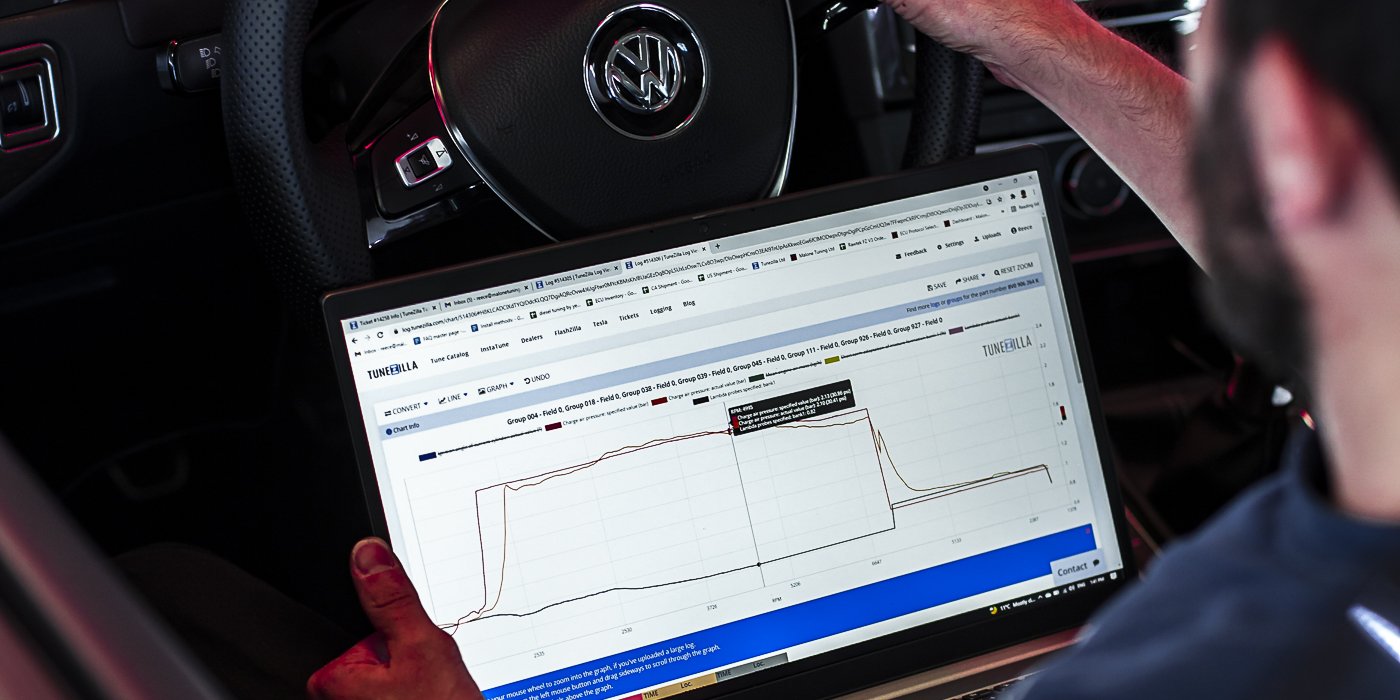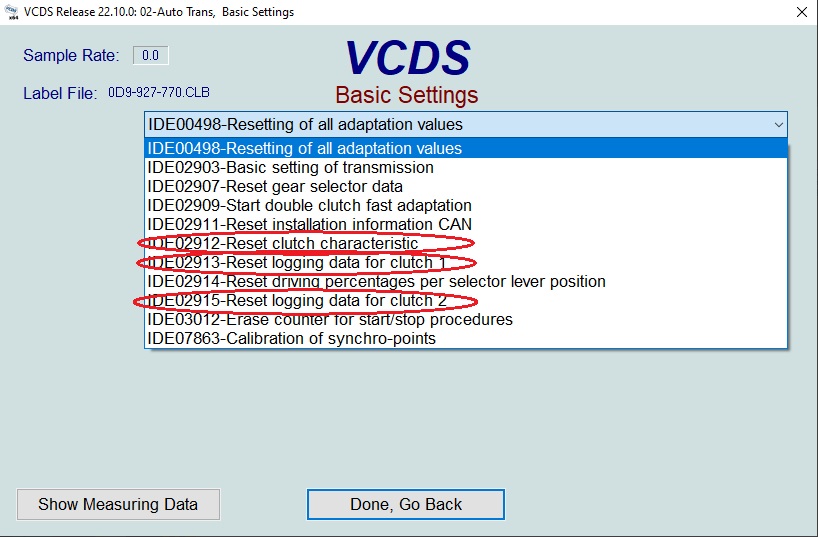Custom Tuning starts at $1999. To get a more accurate cost on your custom tune, please create a ticket and tell us more about your build, and your specific modifications.
If you feel that our existing tune offerings will not work for your application or your intended use, you can request Custom Tuning. Custom Tuning must be requested through our Tickets, and you must provide vehicle information as well as hardware (upgrades) information. Once submitted, our team of calibrators will evaluate your request and determine if Custom Tuning can achieve your goals and if they are able, your Tune Request will be accepted.
Custom Tuning requires heavy participation from the Customer, either through an Authorized TZ Dealer or the Customer themselves. TuneZilla Calibrators will require that the vehicle has access to dyno time when needed, and data logging is required. If you are not comfortable with data logging, and if you may not be able to access a facility with a dyno (many facilities will rent dyno time) custom tuning may not be possible for you.

Custom Tuning vs. Off The Shelf Tuning
We understand that our end users have varying driving styles and build purposes, which is why we offer revisions on all of our Off-The-Shelf tunes. By offering Custom Tuning to our customers, we can be sure you are getting the most out of your vehicle with your specific parts upgrades. Our OTS (off-the-shelf) maps are tested in house with as many variables as possible to ensure even if you don’t want to customize your tune, your vehicle’s OEM sensors and adaptations will still be able to optimize our tunes to your region’s fuel and most bolt-on upgrades. Tune Revisions are not the same as Custom Tunes. See our Terms and Conditions for our re-tune policy (section 4b)
We believe it’s important for our customers to understand what is happening inside their engine so they can make informative decisions. Our LOG VIEWER automatically generates your vehicles data log .csv files into easy to read graphs which can then be viewed by our Calibrators to find areas of optimization on your vehicle. Not only can this data be used to optimize your tunes, but a lot of troubleshooting and diagnosing can be done by comparing requested data to actual data at a glance.
In many cases, custom tuning is not required. If you are unsure if you will benefit from a Custom Tune, you can reach out to our team and upload data logs for them to examine.
Requires
Upgrade | Custom Tuning |
|---|
Fuelling upgrades (Injectors, Rail Pressure Sensors, etc) | Supported |
Turbo Upgrade - Hybrid or larger | Supported |
Hardware Removal | Supported |
Immobilizer Delete (Engine Swap) | Supported |
Notes
This Stage 3 DSG tune can be comfortably paired with a completely stock engine (ECU) all the way up to Stage 3 ECU tune. If the vehicle has a Stage 4 ECU tune, then please choose a Stage 4 DSG tune or request it from us.
This transmission tune increases the torque limit and in most cases lowers the RPM shift points to stay in the best performance and efficiency range. Shifts are smoother and quicker. The gear number indicator is also added to the instrument cluster in most cases.
ECU Tune | DSG Tune |
|---|
Stock | Compatible |
Stage .5 | Recommended |
Stage 1 | Required |
Stage 2 | Required |
Stage 3 | Required |
Stage 4 | Not Compatible |
Requires
This is REQUIRED if you want to run a Stage 1 ECU tune up to Stage 3 ECU tune in in your DSG equipped vehicle.
You CAN use this DSG tune with a stock ECU or Stage 0.5 ECU. It is not required.
Notes
This Stage 4 DSG tune should be paired with a Stage 4 or higher ECU tune. It has the same features of the Stage 3 DSG tune, plus the following:
- Higher RPM shift points that take advantage of a larger turbo sustaining more boost at higher RPM. Not recommended for Stage 3 and smaller turbos.
- Further increased clutch clamping pressure (note: DSG clutch adaptation is required, see below).
Requires
This is REQUIRED with a Stage 4 or custom engine tune in in your DSG equipped vehicle.
You CAN use this DSG tune with a stock ECU or Stage 0.5 ECU. However, due to stronger clutch clamping pressure, you may feel firmer shifts than a Stage 3 DSG tune.
- After flashing your TCU, you must reset the following parameters in your TCU basic settings (using VCDS or similar)
- Reset Clutch Characteristic
- Reset Logging Data for Clutch 1
- Reset Logging Data for Clutch 2
- These parameters must be reset otherwise clutch pressures will not increase
